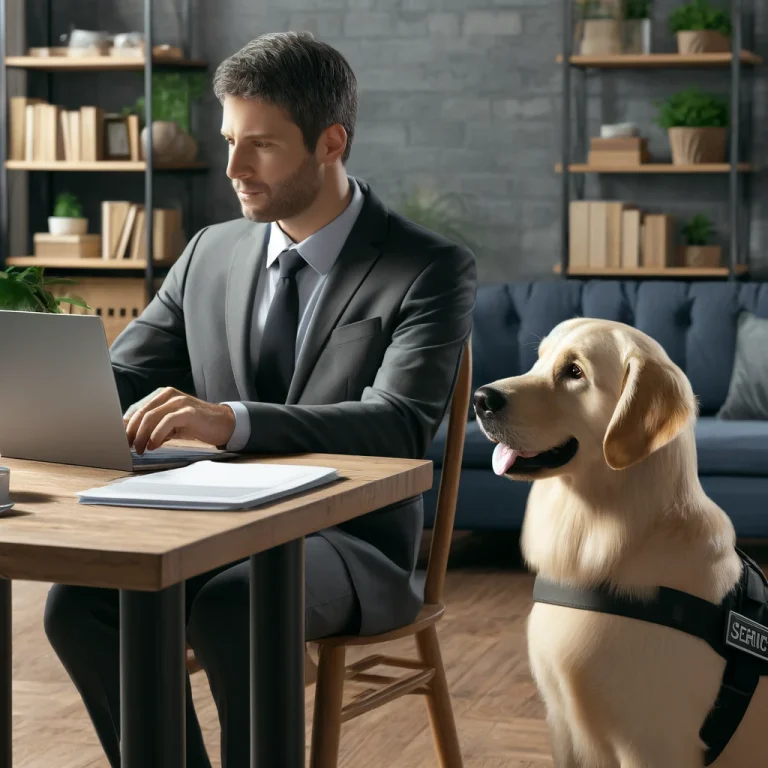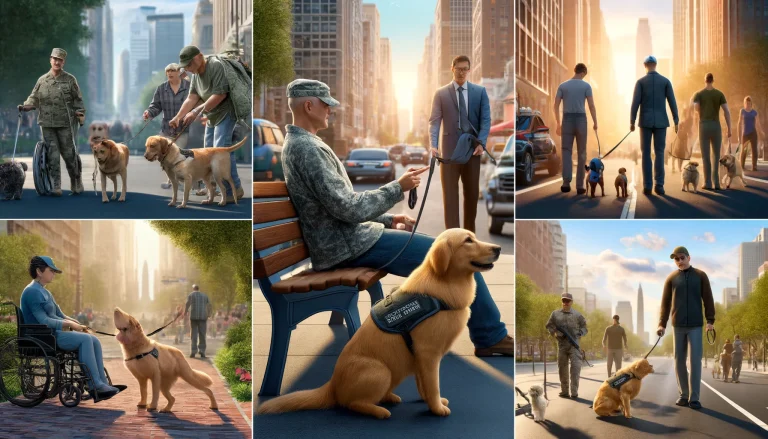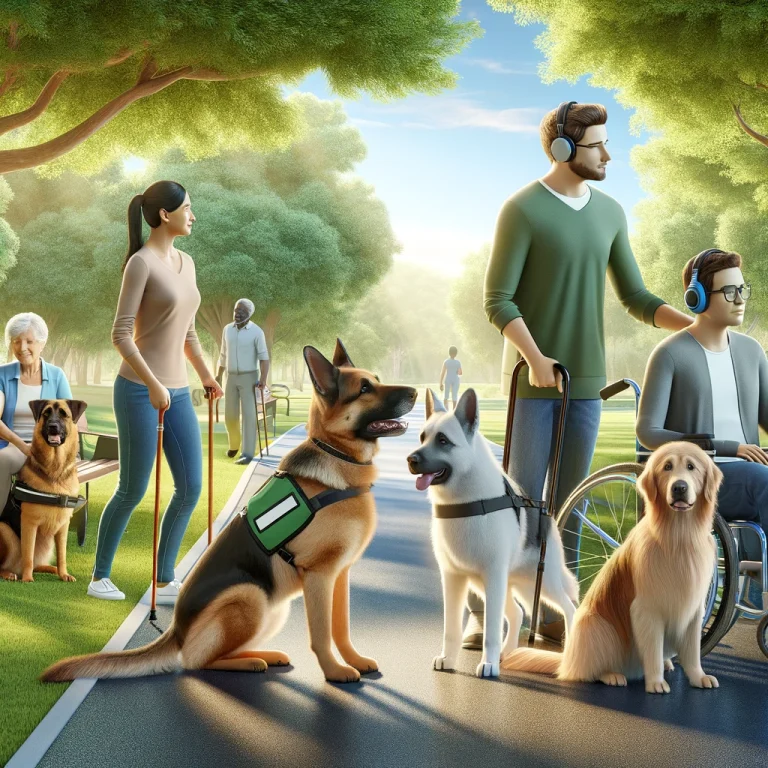Introduction: Unraveling the Rich History of Service Dogs
The journey of service dogs is a compelling saga of evolution, innovation, and compassion. From their early roles in ancient civilizations to their current status as indispensable aides for individuals with disabilities, service dogs have continually adapted to meet human needs. This blog explores the profound history and development of these remarkable animals, revealing how they have become vital companions in enhancing human life.
The Origins of Service Dogs
Ancient Beginnings
The concept of service dogs is not a modern invention. Historical evidence suggests that the use of dogs for assistance dates back to ancient times. In Roman literature, there are accounts of dogs guiding the visually impaired, and artifacts from various ancient cultures depict dogs in roles that closely resemble those of modern service animals.
The Middle Ages to the 19th Century
Throughout the Middle Ages and into the early modern period, dogs were depicted as helpers to humans in various European artworks, indicating their role in society beyond mere companionship. However, it was not until the late 19th century that organized training programs for service dogs, particularly for the blind, began to emerge.
The Formalization of Service Dog Training
The Pioneers of Service Dog Programs
The formal training of service dogs began in Germany during World War I, initially to aid war veterans who were blinded in combat. This initiative marked a pivotal moment in the Service Dog History, laying the groundwork for structured training programs that would later spread across Europe and to North America.
Expansion and Diversification
By the mid-20th century, the role of service dogs had expanded beyond aiding those with visual impairments. The introduction of service dogs for hearing-impaired individuals and later, for those with mobility issues, demonstrated the Evolution of Assistance Dogs in adapting to diverse human needs.
Milestones in Service Dog Development
Legal Milestones
Significant legal advancements have played a crucial role in the integration of service dogs into public life. The Americans with Disabilities Act (ADA) of 1990 was a landmark achievement, legally recognizing the right of individuals with disabilities to be accompanied by service dogs in all areas of public life.
Technological and Training Innovations
Advancements in training methodologies have dramatically improved the effectiveness of service dogs. Modern training techniques are more humane and efficient, focusing on positive reinforcement. Technological aids such as GPS-enabled harnesses and specialized equipment have further enhanced the functionality of service dogs.
The Modern Era of Service Dogs
Broader Roles and Recognition
Today, the roles of service dogs are broader than ever, covering a spectrum of disabilities including mental health issues like PTSD. The recognition of psychiatric service dogs underlines the adaptability of Service Dog Development to encompass mental and emotional support.
The Impact on Human Lives
Service dogs have profoundly impacted the lives of many individuals, providing not just physical assistance but also emotional support, thereby enhancing the quality of life and fostering greater independence.
The Future of Service Dogs
Continuing Innovation
As society progresses, the potential for new applications of service dogs seems limitless. Ongoing research and technological innovation promise to enhance their capabilities, potentially offering new avenues of assistance.
Challenges and Considerations
Despite the advances, challenges such as public awareness, accessibility, and rights for service dogs persist. Addressing these challenges is essential for the future development and integration of service dogs into more aspects of public and private life.
Conclusion: Embracing the Legacy and Future of Service Dogs
The history of service dogs is not just a chronicle of animal training but a reflection of human ingenuity and empathy. As we continue to learn from and adapt with our canine companions, the potential to enhance lives through service dogs remains boundless. For more insights into the world of service dogs and their impact on society, visit ServicePupSolutions.com.
Need help self-training a Service Dog or an Emotional Support Dog? Click Here for assistance.






